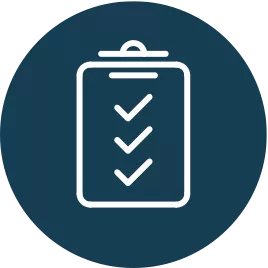E-Commerce Checklist
The E-Commerce Checklist covers key items that you may consider when starting your business. Get a head start on the planning process by knowing upfront what to expect so you don't run into unexpected surprises that may delay your grand opening.

- Finding a Location
-
Given the nature of an e-commerce business, you may be planning to use your home as your office. If you are planning to have a home-based office, please keep in mind a couple of city regulations:
-
The commercial activity associated with your business cannot be visible from outside - for instance, no signs or window/outside displays.
-
You may only have one employee working in the office who does not live in the home.
-
You may only have two deliveries and pick ups to your office per day, and cannot park or store commercial vehicles on site.
-
You may not use mechanized equipment that wouldn't normally be used in a residential setting.
-
You may only have one client visit per hour between the hours of 8:00 a.m. to 8:00 p.m.
If you have clients or employees, make sure to review whether your office is accessible to for persons with disabilities, as required by the Americans with Disabilities Act.
If you use part of your home for business, you may be able to deduct expenses for the business use of your home. Check with the IRS or your accountant for more information.
If you are planning to have many deliveries to and from your business, or manufacture or store a large number of goods, a home-based office may not be the best fit. You may consider finding a commercial or industrial space that fits your needs.
Review your lease closely before signing it. Keep in mind that commercial leases are very different from residential leases. You may also consider hiring a lawyer to help you review and negotiate your lease.
-
- Register your Business
-
Before you open your doors, you will need to register your business, your business name and business entity. Check out the online start-up guide to get a tailored guide on how to formally register your business with the City, County, State and Federal Government and get set up to pay business, sales and payroll taxes.
- Internet Sales
-
If your business is located in California, get smart on the laws regarding the collection of sales taxes for internet purchases. Generally speaking, internet sales are treated and taxable similar to any retail, in store-sales. There are some items that are exempt from sales tax, such as used goods that are being resold, sales of cold food products and sales that are delivered outside of California.
Sales of electronic data products such as software, data, eBooks, mobile applications or digital images may not be taxable if they are delivered to the customer online.
For more information about sales taxes and exemptions, please visit the California State Board of Equalization website.
- Bring on Staff
-
Review the Hiring Section for information on additional wage and employment guidelines.
- Additional Resources
-
If you prefer a personal touch to getting your business of the ground, check out the Resources Section of the Business Portal. You can find organizations that might be helpful to you along the way, or visit one of the City's nine BusinessSource Centers for dedicated, free technical assistance.
- Additional Reading
-
The State of California Board of Equalization has created two publications that may be helpful to better understand sales tax requirements for internet sales (Publication 73: Your California Seller's Permit) and sales tax exemptions (Publication 61: Sales and Use Taxes: Exemptions and Exclusions).
BOE Publication 73: Your California Seller's Permit
BOE Publication 61: Sales and Use Taxes: Exemptions and Exclusions